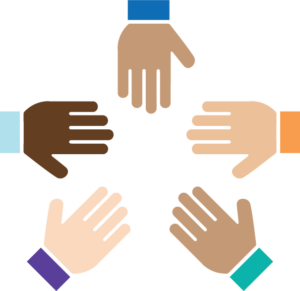Models of care toolkit
Partnering with First Nations, Inuit and Métis partners
Many First Nations, Inuit and Métis demonstrate resilience and strength when facing challenges in accessing cancer services and diagnostics. Acknowledging and addressing these disparities supports the Truth and Reconciliation Commission’s Calls to Action.
Strengths-based community partnerships

First Nations, Inuit and Métis governments, organizations and communities have strategies and resources to manage the health of their communities and understand their local needs. Engagement with First Nations, Inuit and Métis communities should be done collaboratively to support these approaches. There is significant value and utility in the community experience and knowledge of how to address priorities. Meaningful engagement facilitates improved communication and coordination of services, ultimately improving navigation.
Respectful engagement and collaboration
Extensive and collaborative engagement with First Nations, Inuit and Métis governments, organizations and communities is critical to co-designing culturally appropriate care and creating lasting change:
- Proactively establish and maintain meaningful relationships with communities from the start to help build mutual trust and respect.
- Recognize, acknowledge and respect the diverse priorities of First Nations, Inuit and Métis across Canada. Invest time to build trust and establish sustained relationships that support these priorities in models of care.
- Identify and clarify the roles and responsibilities of First Nations, Inuit, and Métis organizations, ensuring their leadership is at the forefront of the work.
- Collaborate to define the specific spaces they need filled, fostering partnerships that empower communities and align with their governance structures.
- Work with First Nations, Inuit and Métis governments and communities to understand existing models of care and co-design enhancements that optimize available community-based supports.
- Learn and recognize the importance of relationship-building principles and cultural competency when working with First Nations, Inuit and Métis partners. Courses are available from groups such as the Indigenous Reconciliation Group and San’yas.
- Ensure relationships with First Nations, Inuit and Métis are reciprocal and all partners benefit from them.
See the section about informing community engagement for planning resources and activities that build respectful engagement with First Nations, Inuit and Métis partners in the development of models of care.
Cultural safety and delivering culturally appropriate care
 Delivering culturally safe care is an important component of cancer care for First Nations, Inuit and Métis. The First Nations Health Authority in British Columbia defines cultural safety as an outcome based on respectful engagement that recognizes and strives to address power imbalances inherent in the healthcare system. It results in an environment free of racism and discrimination, where people feel safe when receiving health care.
Delivering culturally safe care is an important component of cancer care for First Nations, Inuit and Métis. The First Nations Health Authority in British Columbia defines cultural safety as an outcome based on respectful engagement that recognizes and strives to address power imbalances inherent in the healthcare system. It results in an environment free of racism and discrimination, where people feel safe when receiving health care.
Measuring progress

First Nations-, Inuit- and Métis-specific, self-determined priorities and indicator concepts in the Canadian Strategy for Cancer Control reflect the effort and investments identified by Indigenous communities regarding what is needed to drive change in cancer care, outcomes and experience and improve the health and wellbeing of all First Nations, Inuit and Métis.
